Iran Accelerating China Ties Under Raisi Administration
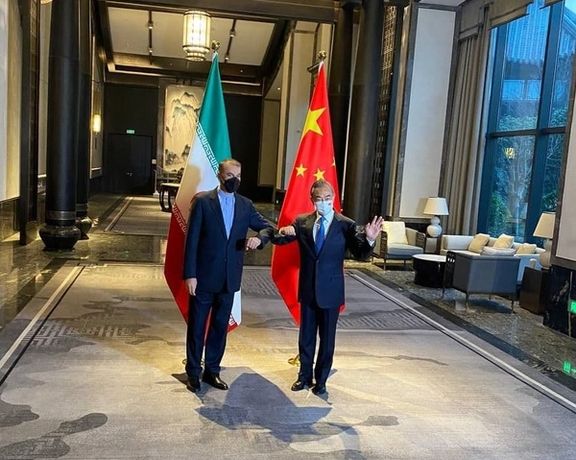
Iran’s Foreign minister who is visiting China to follow up on a 25-year agreement with Beijing says bilateral cooperation is accelerating under the current administration.

Iran’s Foreign minister who is visiting China to follow up on a 25-year agreement with Beijing says bilateral cooperation is accelerating under the current administration.
Hossein Amir-Abdollahian arrived in China at the head of a high-ranking delegation at the invitation of his Chinese counterpart, Wang Yi, on Friday.
The pace of expanding bilateral ties has been accelerating during the administration of President Ebrahim Raisi as the governments of Iran and China “have made very good progress in various issues in line with the interests of both sides”, Amir-Abdollahian said.
After meeting with the Chinses foreign minister in the city of Wuxi in the eastern province of Jiangsu, the visiting Iranian diplomat tweeted in Chinese, saying that they discussed a wide range of topics such as the 25-year comprehensive cooperation plan and the Vienna talks to revive the 2915 nuclear deal.
Noting that Iran and China are in the 50th year of their diplomatic ties, Amir-Abdollahian expressed hope that the relationship between the two countries will leap forward in the new era.
Tehran and Beijing have signed a 25-year strategic cooperation agreement and Iran is hoping to get Chinese investments and more diplomatic support. However, Beijing so far has not seriously challenged US sanctions, as it has cultivated closer ties with the Gulf Arab countries and Israel.
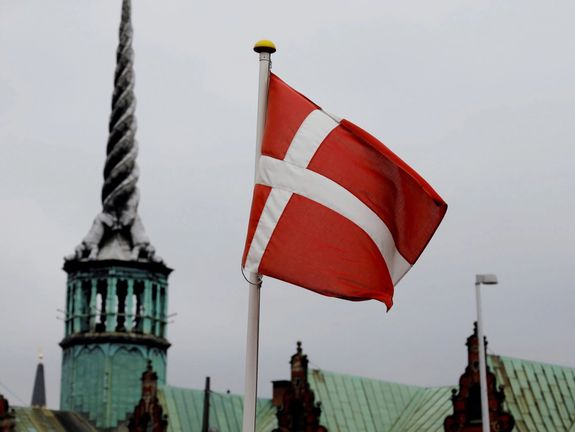
Denmark says espionage threat from Iran, China and Russia is increasing against the country as well as the Arctic region where world powers are competing for resources and sea routes.
Anders Henriksen, head of counterintelligence at the Danish Security and Intelligence Service, said in a report on Thursday that "The threat from foreign intelligence activities against Denmark, Greenland and the Faroe Islands has increased in recent years.”
Copenhagen handles most of the security matters of Greenland and the Faroe Islands, which are sovereign territories under the Kingdom of Denmark as many countries are trying to get access to natural resources, sea lanes, research and militarily strategic areas in the Arctic region.
He added that Denmark's active international role as a NATO member, the openness of its society as well as technological prowess has made it "an attractive target of foreign intelligence activities" including from Iran, China and Russia.
The report said these foreign intelligence services were trying to make contact with students, researchers and companies to get formation about the Danish technology and research.
On Wednesday, the US military officially confirmed that Iran's intelligence ministry is connected to the cyber espionage group MuddyWater that steals data from computer networks around the world.
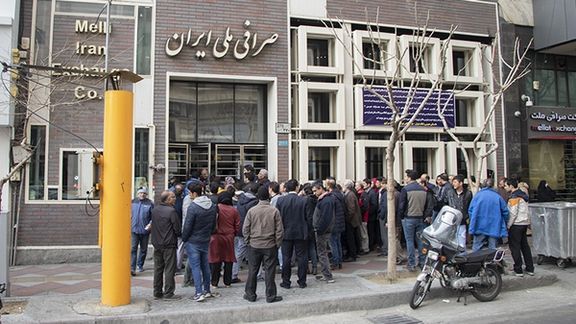
Iran's central bank says that over $6 billion was taken out of the country in six months (March 21-Sept. 20), because of political and economic uncertainty.
The precise amount of capital leaving Iran is very difficult to calculate but it can be deducted from the official data on net capital account deficit.
The amount of capital lost during the first six months of the current Iranian calendar year equals the entire twelve months of the previous year when capital flight amounted to around $6.3 billion, Fararu website wrote Thursday. This is a significant amount for Iran that struggles to sell oil and earn dollars amid US sanctions.
The report said Central Bank of Iran (CBI) figures indicate that Iranians were not reassured about the safety of their investments even when officials of the new government said it intended to resume the Vienna talks to restore the 2015 nuclear deal, Joint Comprehensive Plan of Action (JCPOA). The talks that began in April under moderate President Hassan Rouhani were halted immediately after hardline Ebrahim Raisi was elected president on June 20.
According to official figures, Iran's net capital account balance was positive from 2001 to 2005 when there was foreign investment. But in the following years, except in 2014, the balance has been in the negative. Foreign investment in Iran in 2020 was around $1.35 billion.
In October the conservative Farhikhtegan newspaper said central bank’s statistics indicated that since 2005 Iran had lost around $170 billion in capital while foreign investment also dropped significantly due to various sanctions during the same period. The highest capital drain during this period, according to the CBI, amounted to over $19 billion in 2017, followed by $16 billion in 2018.
The hard currency outflow from the country is invested in various ways including in property, stocks, bonds, cryptocurrencies, or establishment of companies abroad. Investment in neighboring countries is particularly popular.
According to the parliament's research center lack of trust in the future of the country, corruption and social restrictions are factors encouraging people to send their capital abroadoften using hidden methods and middlemen, that might hide even more capital transfers from the country.
The main mechanism used by investors to circumvent government controls over transfering hard currency abroad is through the unofficial. In January 2015, former Vice-President Es'hagh Jahangiri accused the government of hardline Mahmoud Ahmadinejad (2005-2013) of moving over $22 billion of oil revenues to Turkey and the UAE through this system within a period of eighteen months under the pretext of controlling forex rates.
One of the indications of capital flight from Iran is the popularity of property acquisition in neighboring countries such as Turkey, the United Arab Emirates, and Georgia which often goes hand in hand with business investments.
Iranians have been among the top foreign property buyers in Turkey where with investing $250,000 which can help them acquire Turkish citizenship, establish businesses, and engage in international trade without the fear of US sanctions. Iranians have established over 4,000 companies in Turkey between 2013 and 2021 which according to Farhikhtegan can amount to around $3 billion in investment. The same goes with the UAE where over half a million Iranians live and thousands of Iranian businesses are based.
According to the Turkish Statistical Institute, with purchasing over 3,000 homes during the first seven months of 2020, Iranians were the biggest foreign investors in the Turkish real estate market. The previous year, before the pandemic began, the number of properties purchased by Iranians was even higher at nearly 5,500. A senior lawmaker said in Octoberthat Iranians had bought $7 billion of real estate in Turkey in three years.
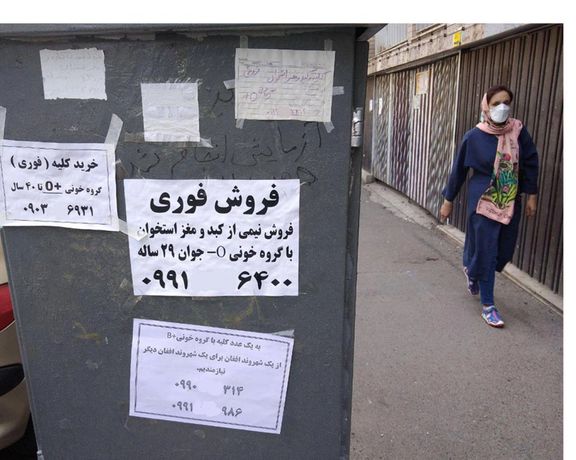
A new report has revealed that many Iranians go to Iraq to sell their kidneys because they can get more money for their organ and in US dollars.
The head of the support group for kidney patients in the western city of Kermanshah, Hossein Biglari, said in an interview on Friday that many people go to the capital Tehran to sell their kidneys because there are brokers there who help them get better prices.
He added that the regulations by the support association of kidney patients forbid buying an organ from people who don’t reside in the same city, therefore the transplant candidates have to forge documents to pretend they live in Tehran.
Such restrictions along with the high exchange rate of the US dollar in Iran have encouraged many people selling their kidneys for money to go to Iraq, he noted.
The official price for a kidney is nearly $3,000 in today’s rates but this is far from the market price for a kidney which is completely arbitrary and can top $10,000 upon agreement between donors and recipients, Biglari said.
Another official from the kidney patients support association of the northern Gilan province, Houshang Rezvanpanah, says the number of people who want to sell their kidneys is increasing due to “poverty and financial problems”.
He said most of the sellers want to use the money to buy a car to work as a driver or have put money down to rent an apartment.

When Meitham, a prospective PhD student wrote to a faculty member of North Carolina University to enquire about joining his PhD program, he never thought he would be accused of just seeking money.
"I don't evaluate emails. I don't evaluate any unsolicited materials. I am not interested in your CV or your email," the response from faculty member William Rasdorf read. He then suggested that Meitham should apply if he was interested in the program. But then said those who send emails and attachments to professors only seek money. "I do not wish to have such students working with me," he added.
Meitham published an image of the response on Twitter. Over 2,000 liked the tweet and nearly 150 replied to it. Everyone sounded astonished by the rudeness of the response and the allegation that those who email faculty members are not serious and "only seek money".
Some twitterati advised Meitham to apply to the university while others told him he should take up the matter with the university's dean and demand an apology. Some took direct action and protested to the incident in their tweets to the university's official Twitter account.
In response to an email enquiry by Iran International, Professor Morton Barlaz, the head of the department of civil, construction, and environmental engineering, said the university regretted the message conveyed to Meitham and were addressing the matter internally.
"It is not reflective of NC State's attitude toward international graduate students, who are a vital part of our teaching and research programs. We have successful graduate students from all over the world. We've apologized to him and encouraged him to apply," he wrote.
But many other university officials did not respond to Iran International emails and questions, including the spokesperson of the university and the Vice Provost for equity and diversity.
Sending “expression of interest” emails prior to submitting a full graduate studies application is quite common as many students find it unaffordable to pay the $85 fee for every application, particularly those living in the developing world.
For Iranian students the payment of application fees is practically impossible, even if they can afford it, due to US sanctions that have cut off Iran's banking relations with the rest of the world.
"Does the NC State professor know about the cost of applying? $85 is unaffordable for most students of the global south if they have to submit multiple full applications. Why should universities charge such fees while bragging about equity, inclusivity, diversity ...?" Kaveh Madani, research professor at City College of New York and the former deputy head of Iran's department of environment tweeted about the incident.
Madani also pointed out that many like him wrote emails and sent CVs when they applied to graduate school. "We also admitted many grad students who wrote emails to us,"he said in a tweet. Madani urged the university to look into the matter and when the official Twitter account of the university responded to Meitham's tweet and said the situation was being addressed internally and it was a "responsible action".
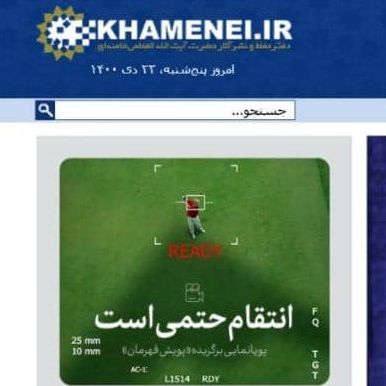
US Senator Lindsey Graham has slammed an animated video posted by Iran’s Supreme Leader Ali Khamenei showing an attack on former US President Donald Trump.
Graham tweeted Thursday, hours after Khamenei put the video on his official website, “In case you were wondering who we are dealing with when it comes to the Iranian – this video says all you need to know.”
The animation shows an all-terrain vehicle with an operator on board driving through a golf course and approaching a point from where its camera shows a man who looks like Trump playing golf. The operator targets the figure and a large gun on top of the vehicle aims at the target and the video ends.
US National Security Advisor Jake Sullivan warned Iran on Sunday not to carry out threats to harm any Americans, after Tehran intensified calls for revenge on the second anniversary of Qasem Soleimani’s death.
Islamic Republic leaders have been issuing threats to take revenge from American and Israeli officials who they believe were involved in planning and carrying out Soleimani’s killing by a US drone strike in Baghdad in January 2020. Trump who authorized the killing is at the top of the Iranian list.
More than 100 Republican Congressmen have written to the Biden Administration to stop nuclear talks with Iran.